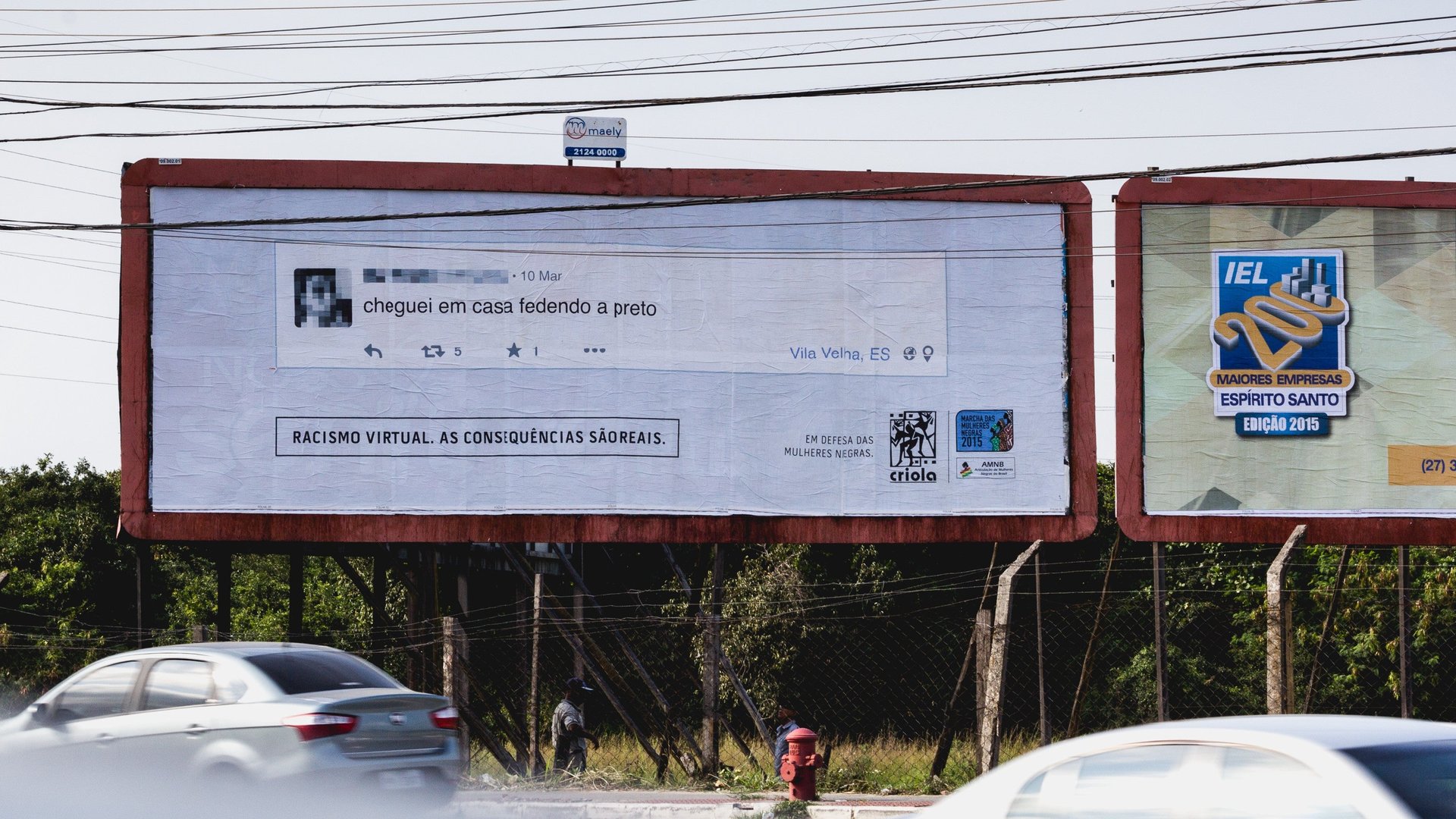Trolls beware: In Brazil, your racist online posts could end up on a billboard
In Brazil, where talking openly about racism is still taboo, it may take provocative billboards to get discussion going.


In Brazil, where talking openly about racism is still taboo, it may take provocative billboards to get discussion going.
Criola, a black women’s rights organization, has launched a campaign to denounce racism by republishing offensive comments it finds online, and making them visible to everyone.
After identifying racist posts on Facebook, the Rio de Janeiro-based activist group uses geolocation tools to find the place where they originated. It then displays the offensive comments on billboard sites nearby. The name and face of the author are blurred; Criola’s intent is not to expose anyone, but to raise awareness about the effects of posting those kinds of messages online.
The tagline: “Virtual racism. The consequences are real.”
Brazil is one of the most diverse countries in the world. But although black or partly black Brazilians make up a little more than half of the population, they are still very much a minority politically and economically.
The Criola campaign started in response to racist comments posted on a TV station’s Facebook page about black presenter (link in Portuguese) Maria Júlia Coutinho on June 3, Brazil’s National Day of the Fight against Racial Discrimination. Criola called the attacks cowardly, and its authors criminals. (Racism is a punishable crime in Brazil.)
At the same time, instances of racism online—and the attention they generate—are encouraging Brazilians to debate racial issues in real life, too, the group said in a press release.